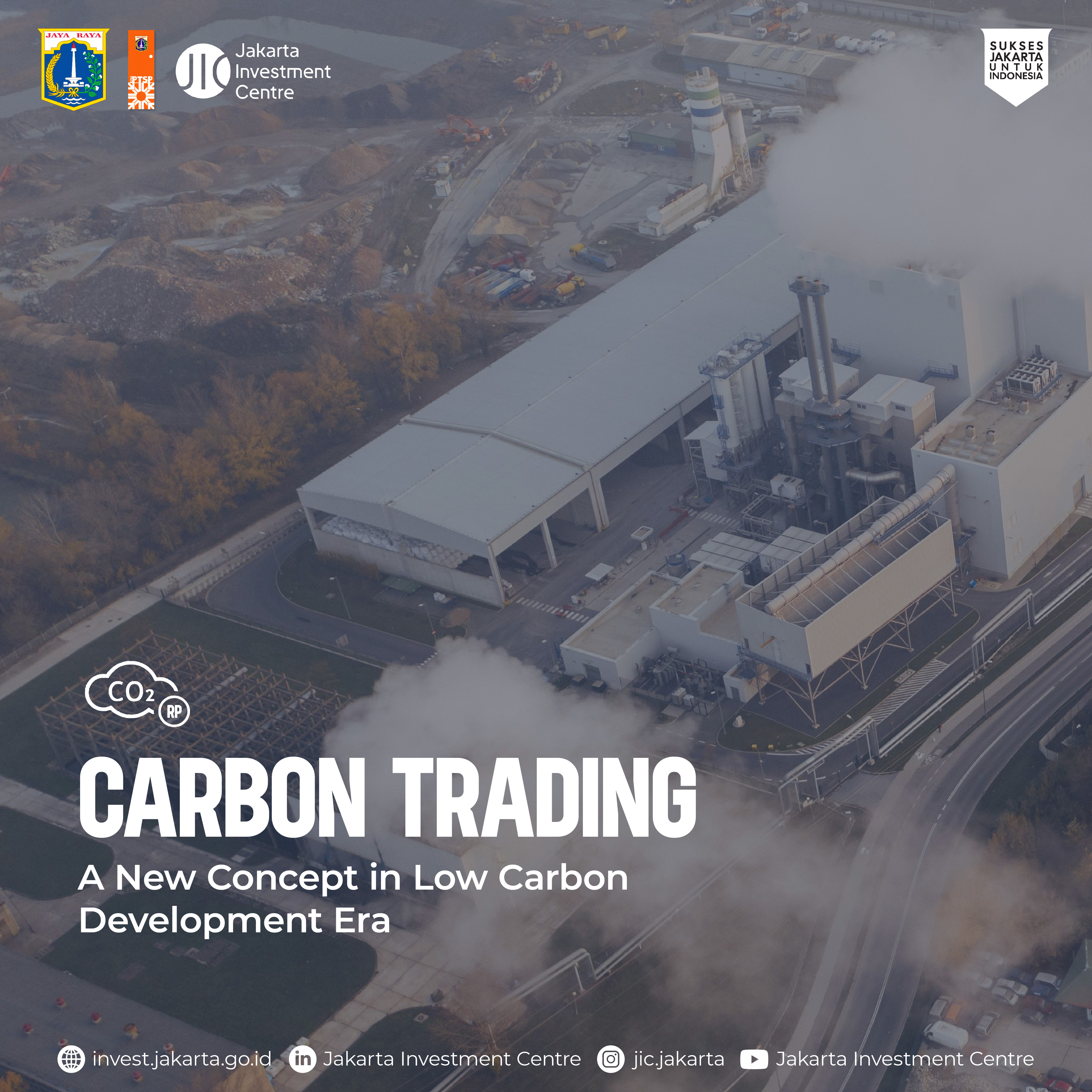

Carbon trading has become one of the burgeoning topics in contemporary development. Though it underwent significant advancement after the Paris Agreement entered into force in the end of 2015, its concept has been long construed in 1997 since the adoption of Kyoto Protocol, the predecessor of Paris Agreement. The advent of carbon trade itself is to respond to the rising global temperature through an administrative approach that curbs pollution by providing incentives for achieving emissions reductions.
Conceptually, carbon trading is a mechanism agreed upon in the Kyoto Protocol and Paris Agreement which gives countries the right to buy and sell carbon (tradable emission rights). Under this concept, carbon credits, which represent the 'right' for an entity to emit a certain amount of carbon emissions or other greenhouse gasses in its industrial processes, are commercialized. One unit of carbon credit is equivalent to reducing emissions of 1 ton of carbon dioxide (CO2) and the buyers are the ones that produce carbon emissions that exceed its set limit.
In this matter, the national governments are the authorities that issue the carbon credit up to a certain limit. If a company has less emissions than the credits it has, then the company can sell these credits on the carbon market. However, if the emissions produced exceed the credits they have, the company must pay a fine or buy credits on the carbon market. In this way, countries in the world can control the amount of carbon emissions and diminish the impact of greenhouse gases.
The carbon market itself is divided into Voluntary Carbon Market (VCM) and Compliance Carbon Market (CCM). The former is initiated under the voluntary intention of an entity to reduce greenhouse gases emissions. This encompasses all carbon transactions that are not government-regulated carbon markets. The latter is established because of regulations enacted by the government. Its volume depends on the scope of the policy and is relatively easier to plan in the long term in addition to its broader scale.
In addition, the Paris Agreement provides a framework for implementing carbon markets on an international level. Under article 6 of the Paris Agreement, market and non-market cooperation mechanism instruments are regulated, including carbon pricing and carbon trading. Further, it is explained in detail that parties can utilize international trade to help achieve emission reduction targets, establish a framework for appropriate financial regulations, and create new, more ambitious market mechanisms. This, in turn, has led to the agreement that allows cooperation between countries using international standards, namely mutual transfer of emission reduction results or Internationally Transferred Mitigation Outcomes (ITMO).
In the context of international development, carbon trading is considered as a mark of major progress towards the low carbon development that aims to counterbalance the economic development across the continent. It is also a concrete action in attaining the long-term goals of the Kyoto Protocol and Paris Agreement. The market-based concept of carbon trading is seen to be contributory in both helping governments to achieve their national carbon reduction targets and encouraging the private sector to reduce GHG emissions.
#carbontrade #carboncredit #sustainabledevelopment #climatechange #climatemitigation #UrbanLowCarbon #sustainableinvestment #investment #InvestInJakarta